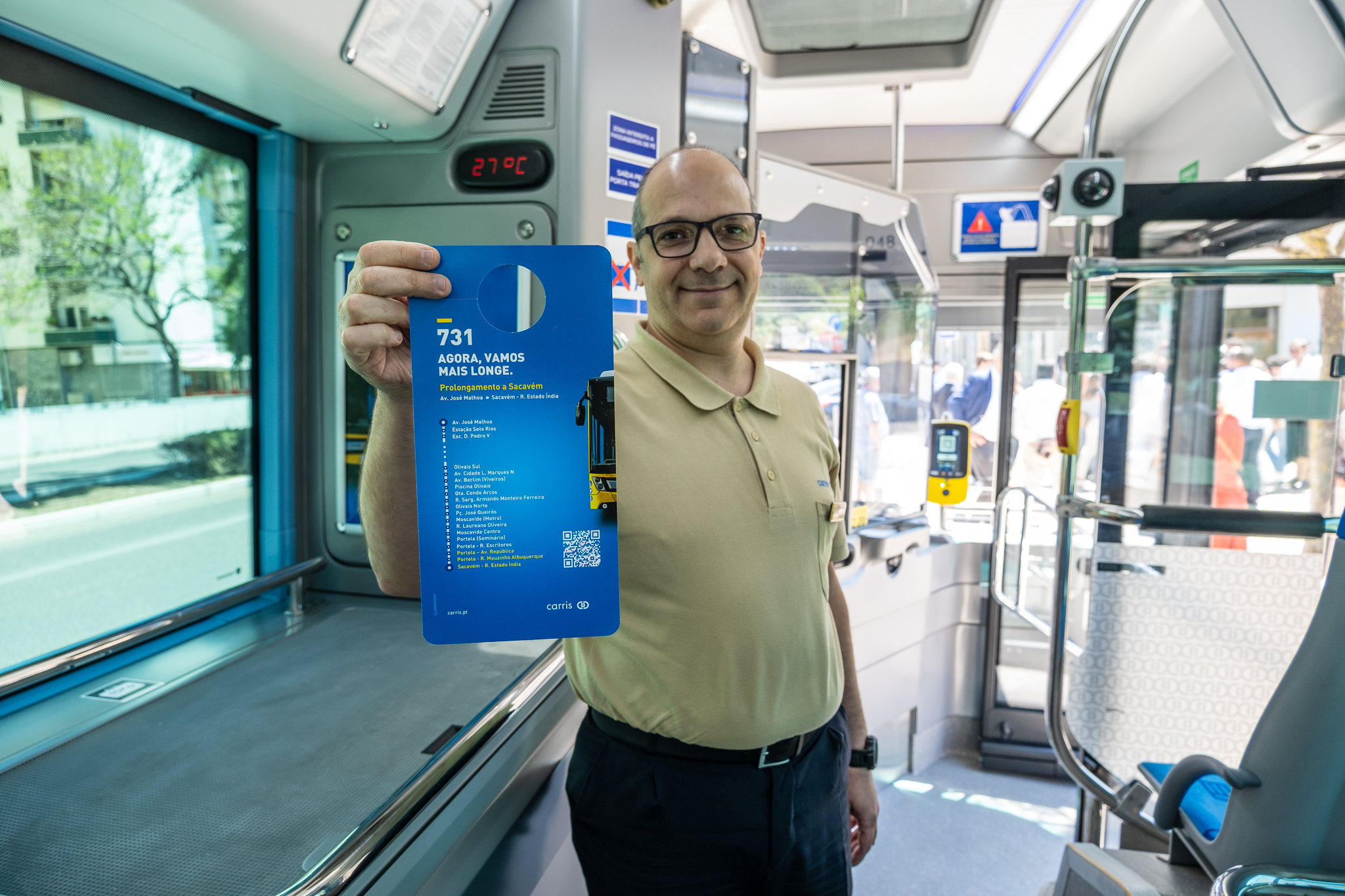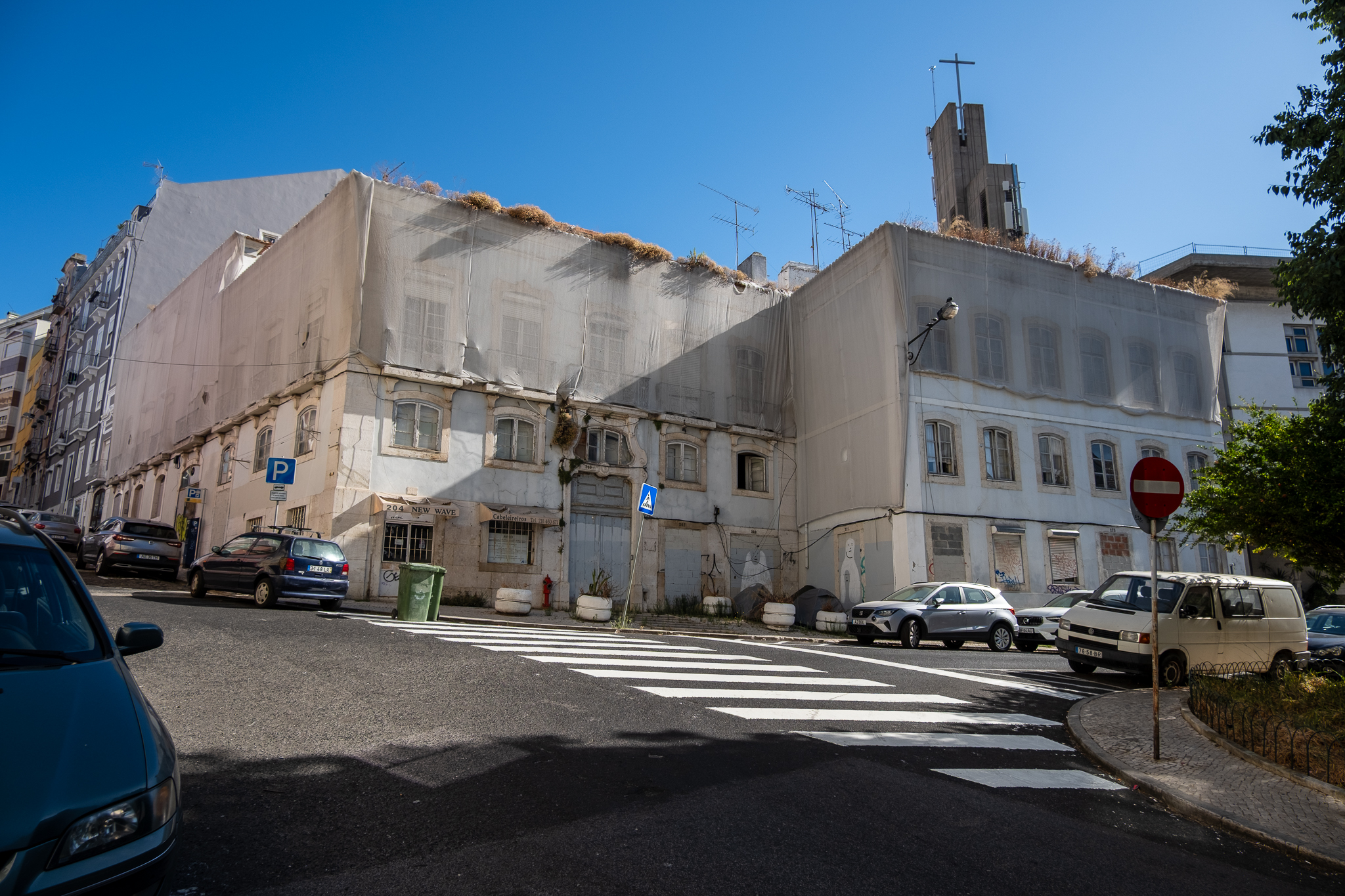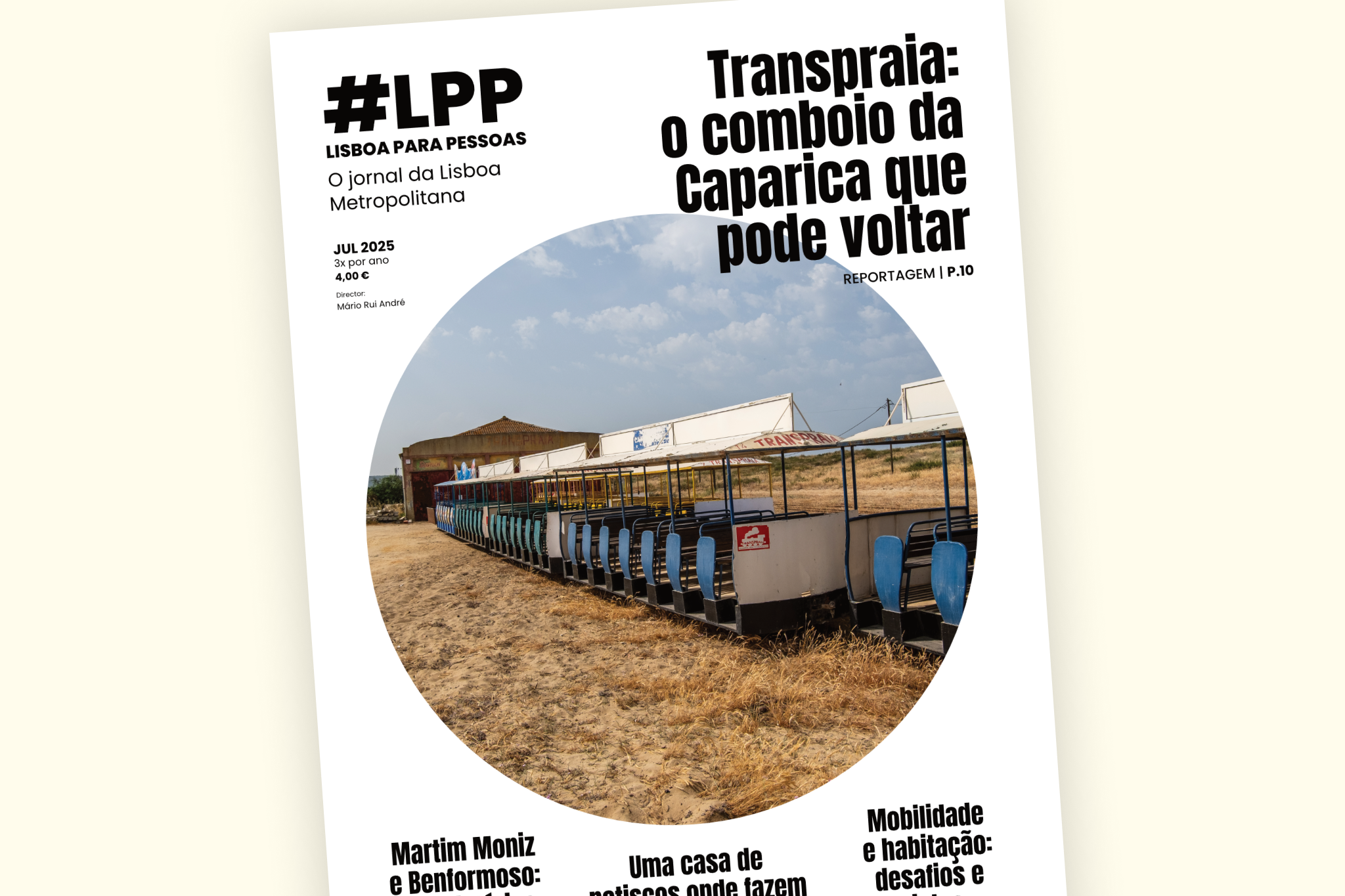João Ferreira, a PCP councillor, questioned the Mayor about the contract for the management of public lighting that the municipality intends to sign with a private energy company. Moedas didn't answer all of the communist councillor's questions and accused him of making "his movie" at a public meeting, since the issue had already been discussed at another (private) meeting. However, from the city's point of view, what can we get out of this discussion?

Lisbon prepares for hand over part of the management of public lighting to a private energy services companythrough a Energy Efficiency Management Contract (CGEE). In the first phase, the contract provides for the modernization of 22% of the city's public lighting network with LED technology and the installation of a remote management system, allowing the municipality to save on energy consumption and bills.
However, the process has raised doubts among the opposition to Moedas in Lisbon City Hall, namely the PCP. João Ferreira, a communist councillor, asked some questions at the last town hall meeting before the vacations, which took place on July 26. Moedas was irritated by the councillor's insistence on a topic that had already been discussed at a previous meeting, and at the same time failed to provide all the answers sought.
Let's get to the details.
What is this contract?
Lisbon has around 72,000 public lighting points, which consume 53.5 Gwh (gigawatt-hours) of energy per year. The city's lighting infrastructure accounts for around 75% of the council's annual electricity bill. To save this cost and the environment, the municipality is preparing to modernize more than 16,000 luminaires with LED technology and an internet-connected management system.
To this end, the city council wants to sign a contract with a private energy company - Empresa de Serviços de Energia (ESE) - to be selected by public tender. Energy Efficiency Management Contract (CGEE), like other national municipalities.

This contract, which will have the duration of 16 years and represents a total investment of approximately 21.2 million euroswill enable the municipality of Lisbon to receive a "turnkey solution" for the 16,000 luminaires, i.e. 22% of its public lighting network. Specifically, it is estimated that this modernization will enable electrical power savings in the order of 70%, allowing a annual reduction in electricity consumption and costs of approximately 11 MWh and 1.824 million euros.
Over the 16 years of the contract, the ESE will recoup the investment it will have to make upfront in modernizing the infrastructure and will share the savings with the City Council. You can read about this in detail here.
The communists' doubts
Putting aside the "positions that each political force may have in relation to the outsourcing of public services"João Ferreira showed worried about "protecting the quality of a very important municipal service and the financial interests of the municipality". He put three questions to Carlos Moedas' Executive:
- firston the option of contracting out a turnkey solution to a private party rather than contracting out the various components of the solution directly. "How much could it cost the city council to replace the materials and labor itself, contracting them out on the market through a public tender?"he questioned. "In other words, assuming the cost of the investment in full at an early stage, also benefiting in full from day one from all the savings from this investment, instead of sharing these savings with a third party."
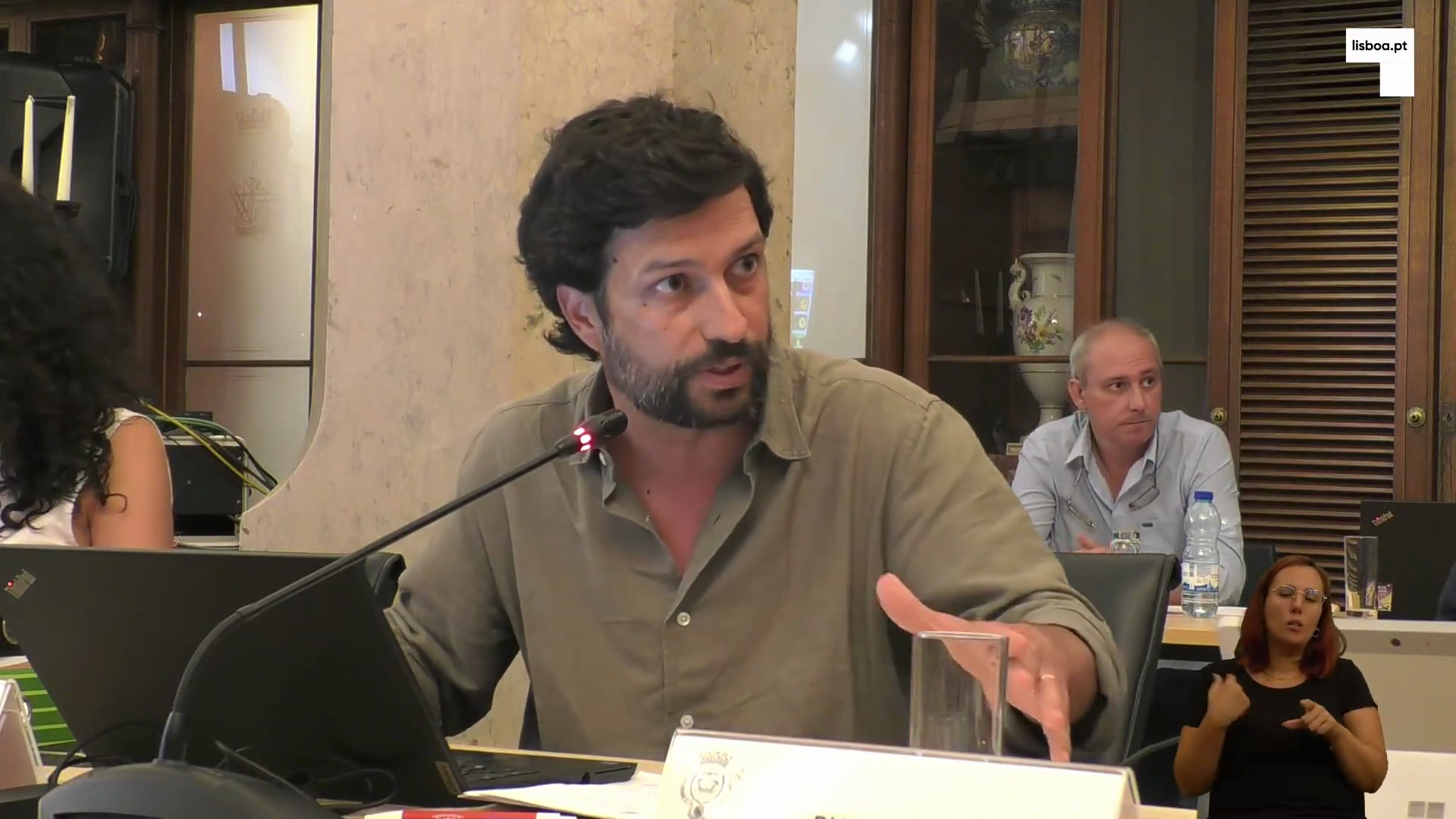
In consultation with experts in the field, the Communists presented an estimate of this cost: 11.5 million + VAT. "This could vary; some of these figures in the context of a public tender could be much lower, but we're talking about something very far from more than 20 million euros"said João Ferreira. "Could it be that the investment being made with this solution is being underestimated, with the result that the City Council is paying rents to a private company for 16 years, giving them resources that could be theirs and that they could use to renovate not just 20%, but the entire city park?"
The communist councillor believes that "this investment cost of 11.5 million euros is perfectly within the reach of the City Council's capabilities, whether directly, through investment or through EU funds".
- according toon the course of the contract to be concluded with the private energy company. João Ferreira says "no elements are provided in the proposal that allow us to conclude that the same level of service of the 16,000 luminaires will be maintained in all circumstances"He was concerned about possible energy savings at the expense of a lower quality lighting service. "It's one thing to make energy savings by maintaining a level of lighting service, it's another to make savings on the back of a deterioration in the conditions of that service"He said he was also concerned about compliance with national and European standards in this area.
The PCP councillor recalled that public lighting "is of great importance to the city's quality of life"This has an impact on pedestrian safety and even on the occurrence of road accidents.
- thirdThe Commission will be responsible for drawing up the specifications that will serve as the basis for the public tender to be launched with a view to selecting an energy company to conclude the future contract. Aware that, "in a field like this, specifications are a technically complex instrument", the PCP sought technical help "with some specialists and planners in this area"and got worried: "There appear to be provisions in the tender specifications that could be considered excessive in some cases or lacking adequate justification, which in any case have the effect of limiting potential candidates for this tender."
João Ferreira wanted to know "who took responsibility for and participated in drawing up these specifications"In particular, which Lisbon City Council departments were involved. The PCP councillor also wanted to know whether a a company called Ambiplanalto had some involvement in drawing up this document, which is essential to any public tender.
The day before the meeting, Ferreira had shared doubts on the social network X/Twitter about Ambiplanalto, a company that at the time only had three contracts on the Base portaltwo of which with the Misericórdia Parish Council (Lisbon) for street weeding and waste collectionboth dated June 2022. O third contract74,250 thousand euros, was signed in October 2022 with the Lisbon City Council to service provision in the context of "drawing up the plan for energy efficiency and intelligent management of the public lighting system in the city of Lisbon".

The communist was surprised that this company was hired for work related to energy efficiency, given its track record in different areas. "The company hired to draw up the plan for energy efficiency and management of the public lighting system, created two years ago, according to Portal Base, has experience in weeding streets and collecting waste"had written on X/Twitter, referring to the issue as the "Lisbon street lighting deal". At the meeting, the day after the publication, Ferreira asked Moedas: "Was Ambiplanalto responsible in any way for drawing up the specifications, or did you have any involvement in this? If so, what was this specific involvement? Were the municipal conservation services directly responsible for the specifications?"
Still negotiating over street lighting in Lisbon 🧵 The company hired to draw up the energy efficiency and management plan for the street lighting system, created two years ago, according to Portal Base, has experience in weeding streets and collecting waste. 1/5 pic.twitter.com/LTlll1fY3A
- João Ferreira (@joao_ferreira33) July 25, 2023
Coins' answers
Carlos Moedas didn't like João Ferreira using the word "negotiata" on X/Twitter. "I think that the language you used yesterday [July 25] on your social networks and that you haven't used here today [July 26] goes beyond anything that is a relationship between two people who believe in democracy"commented the mayor. "The insinuations and words like 'negotiation' seem very serious to me, especially when there is a law in the Portuguese Republic that refers to this type of contract"He was referring to the Energy Efficiency Management Contracts (CGEE) legislation. Moedas then asked Ferreira if he had asked the same questions of municipalities led by the PCP, such as Setúbal, Seixal or Palmela, which have also handed over the management of public lighting and energy efficiency to private companies.
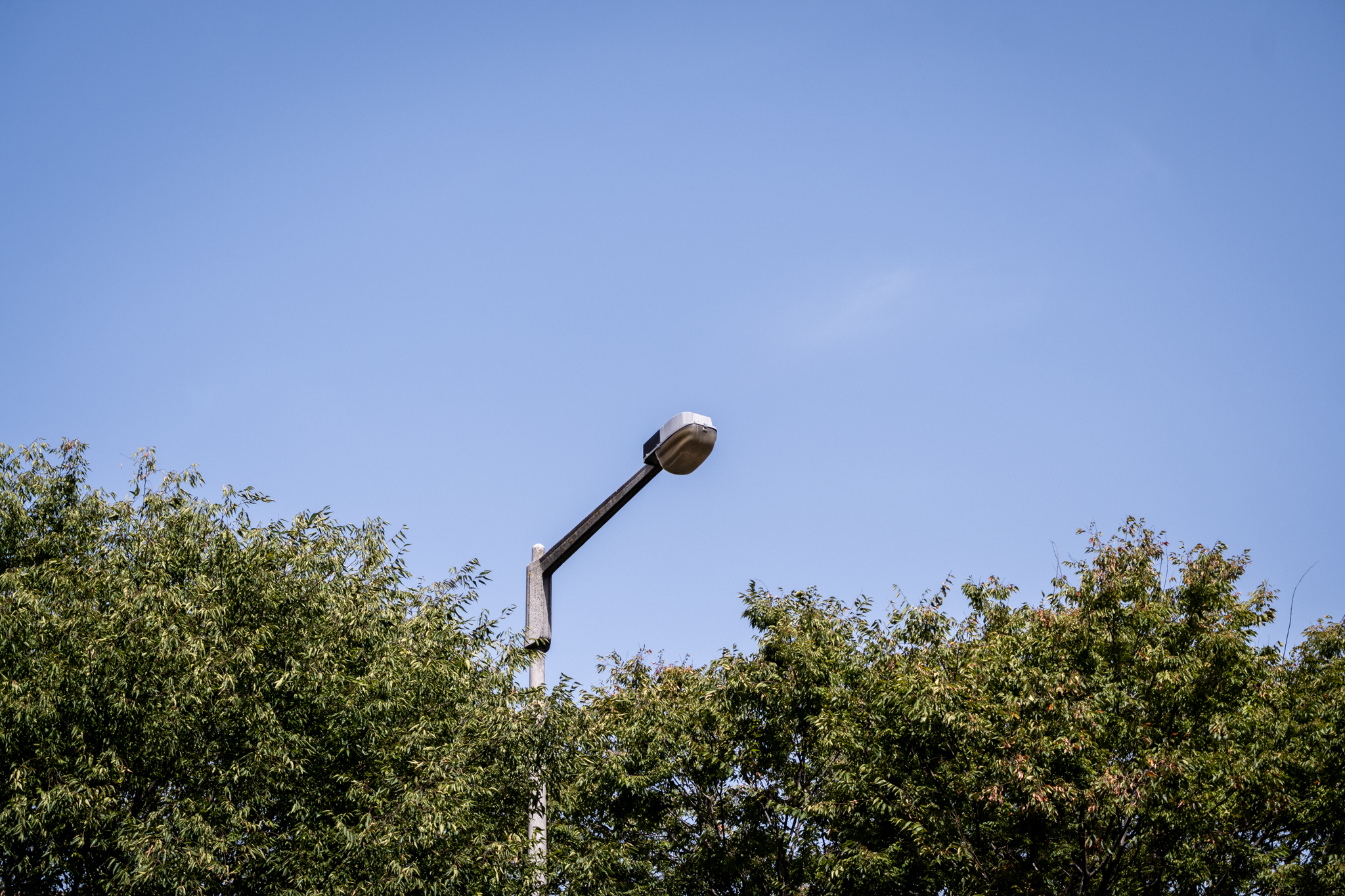
In response, the PCP councillor asked the Mayor not to insist on the argument of comparing Lisbon to other municipalities. "There are two fundamental reasons why Lisbon is a different case from all these councils and all the councils in the country. Firstly, in no other city hall in the country is public lighting managed by the city councils; except in individual cases, it's E-Redes that manages it. In Lisbon, E-Redes is only responsible for what's underground." During the meeting, João Ferreira even showed that with the proposed CGEE, public lighting will have tripartite responsibility: the pole will be the responsibility of the City Council, while the underground will be the responsibility of E-Redes and the lighting will be the responsibility of the private energy company that wins the tender.
What's more, the PCP argued, "Lisbon City Council has the financial capacity to replace these 16,000 lights that no other council in the country would have. This may justify the fact that other councils don't manage the lighting" and resort to the CGEE solution. "If the City Council has the money that the others don't have to make the investment upfront, and to start pocketing the savings from the first day, then why do they choose to put the private sector to the sword?"he insisted.
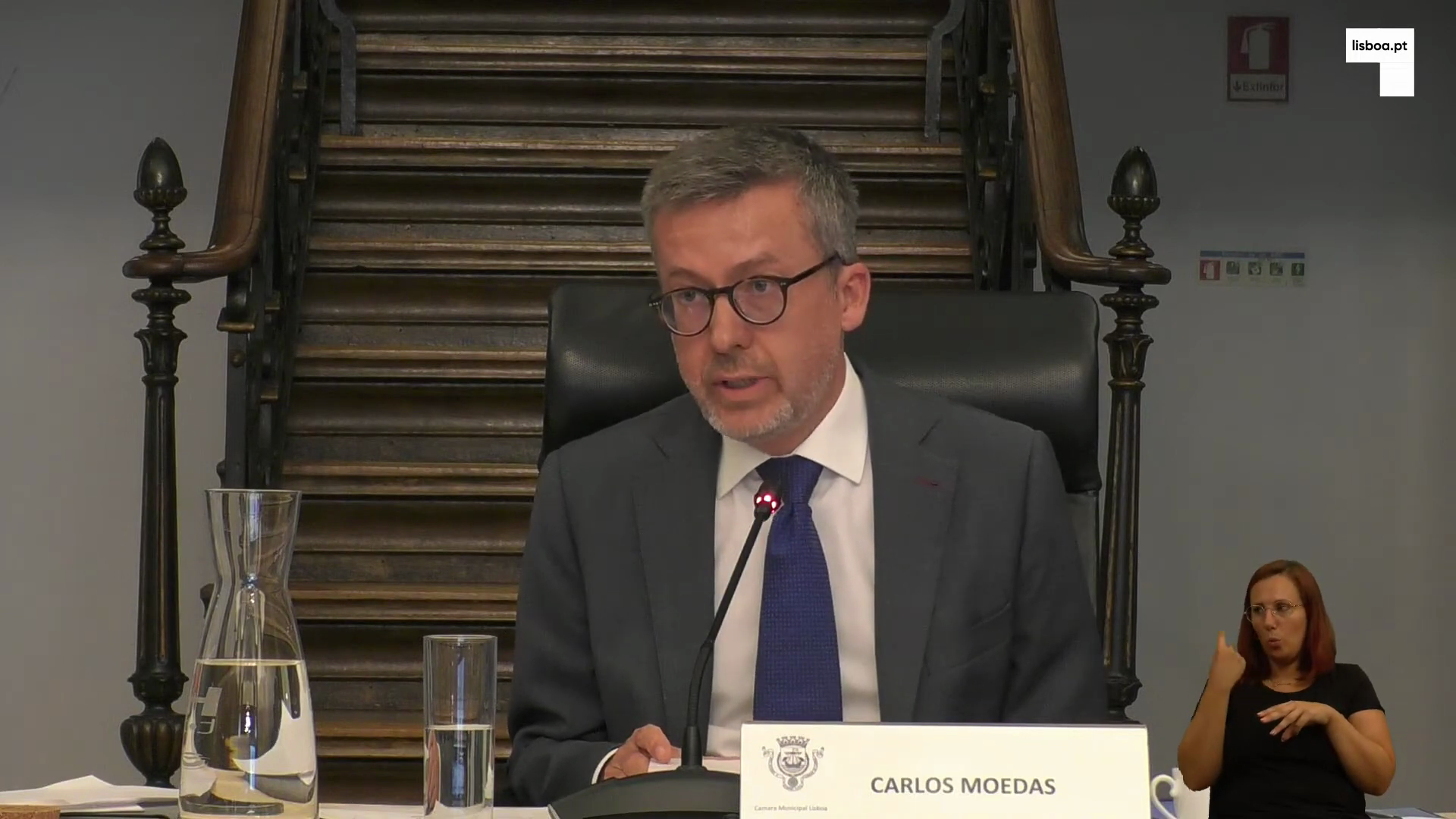
Carlos Moedas left some of the PCP's questions unanswered, but guaranteed that Ambiplanalto "It had nothing to do with this, it has nothing to do with these specifications or this contract. It's another job and it was a company chosen by the [municipal] services". The Mayor tried twice to bring the discussion on street lighting to an end, pointing out that it had already taken place at a previous meeting ("he wants to open a discussion on a proposal that has already been approved here and he wants to do it because we're in a public meeting, he wants to have his movie") and once again criticizing the councillor's publication ("an insinuation made on a social network that there was a negotiation is a very serious statement"). But João Ferreira insisted, using procedural motions such as protests to continue his speech and defend himself.
"It is the obligation of those who manage to provide all the clarifications transparently, and it is the obligation of those who scrutinize to do so. That's what we're doing here"he said. Moedas replied: "Scrutiny is important, but scrutiny is one thing; hinting is another." Ferreira retorted: "No amount of clarification is too much, Mr. President. We don't have to assume that everything is serious and that there are no interests other than the public interest. We have to demonstrate that. And we brought questions here." At the PCP's insistence and unable to provide answers himself, Moedas was forced to call in the Municipal Environment Director, Catarina Freitas, who is responsible for energy efficiency (even though the Public Lighting Division is part of the Municipal Maintenance and Conservation Department).
"The specifications were drawn up by the Lisbon City Council and had no involvement from the company in question"He explained that the DMMC (Municipal Maintenance and Conservation Department) was responsible for the preliminary energy audit and for defining the characteristics of the equipment to be hired, and that its DMAEV (Municipal Environment, Green Structure, Climate and Energy Department) dealt with the administrative side of the contract, together with the DMF (Municipal Finance Department).
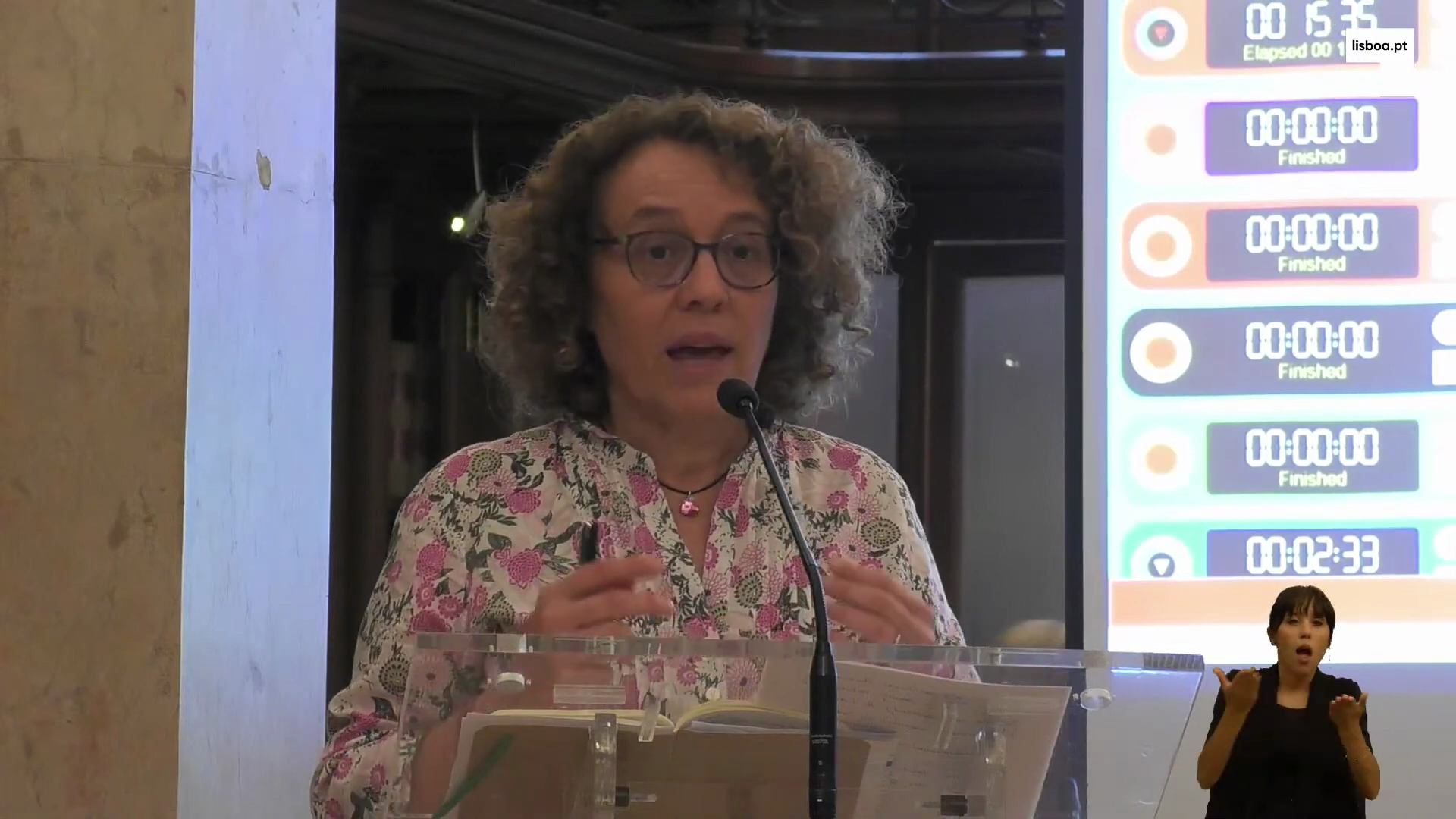
Catarina also clarified that the Lisbon City Council is in the process of work "on two planes"One of them, in the short term, is for the immediate replacement of the 16,000 luminaires; the other, in the longer term, is to assess the entire public lighting network, which is where Ambiplanalto comes in.. "We had two options. Either we went into the field now, since we're talking about a relative weight of electricity consumption allocated to public lighting of almost 70%. Or we could wait for a strategic study"he said. "We are: one, working on the ground with this phase, the objectives of which have been defined by the Public Lighting Division; and two, developing a strategic study, for which several companies have been consulted."
Ambiplanalto was hired for this study. "This is a procedure outside the Energy Efficiency Management Contract"said the municipal director. "This company has already supervised and monitored energy efficiency improvement projects in several municipalities. It is a company that has several business areas besides weeding." According to Catarina Freitas, as part of this strategic work, the entire public lighting register is being updated and measures are being defined for the entire system. "Several companies were consulted."
In view of the clarifications given, João Ferreira was not entirely clear. "I'd say that making an efficient public lighting management plan and defining improvements for the whole system is not something that we can consider disconnected from the technology we're going to install. It would be strange if, on the one hand, we were defining improvements for part of the system and then defining specifications to install equipment completely outside of this work. Therefore, I assume that Ambiplanalto's work will be used for what is listed in the specifications, which is what the council plans to install in terms of lighting and various components." But Moedas didn't give the PCP any more time. "It's really over, it's really over now."

